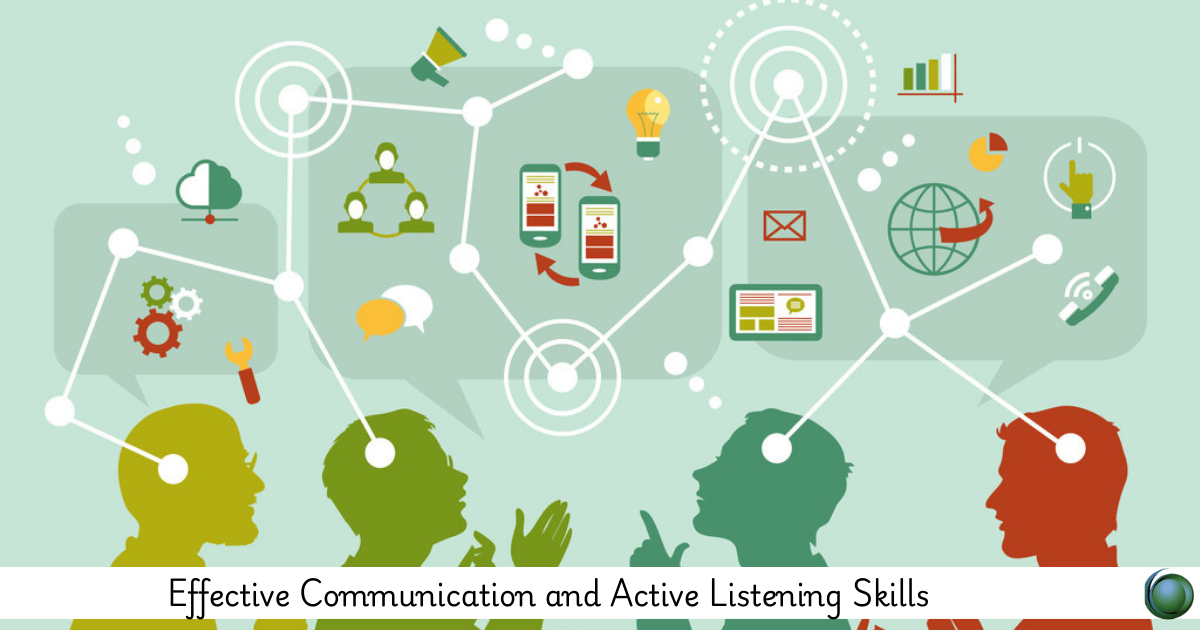Description
Introduction
Effective communication is the cornerstone of successful professional and personal relationships. This course, Effective Communication and Active Listening Skills, equips participants with tools to express themselves clearly, listen with empathy, and foster collaboration. Whether leading teams, resolving conflict, or building client relationships, these skills are essential for impact and influence.
Prerequisites
-
Basic interpersonal interaction experience
-
Willingness to participate in discussions and practice exercises
-
Open-minded attitude toward feedback and self-improvement
-
No prior formal communication training required
Table of Contents
1. Foundations of Effective Communication
1.1 What is Effective Communication?
1.2 Verbal, Non-Verbal, and Written Communication
1.3 The Communication Process and Common Barriers
1.4 The Role of Emotional Intelligence in Communication
2. Communication Styles and Self-Awareness
2.1 Identifying Your Communication Style
2.2 Passive, Aggressive, Passive-Aggressive, and Assertive Behaviors
2.3 Adapting Your Style for Different Situations
2.4 Communicating with Confidence and Clarity
3. Active Listening: The Heart of Understanding
3.1 What is Active Listening?
3.2 Levels of Listening: Internal, Focused, and Global
3.3 Non-Verbal Cues That Show You’re Listening
3.4 Avoiding Distractions and Assumptions
4. Building Rapport and Connection
4.1 Creating Psychological Safety in Conversations
4.2 Using Empathy to Strengthen Communication
4.3 Establishing Trust and Respect Through Dialogue
4.4 Communication in Cross-Cultural and Diverse Teams
5. Asking Powerful Questions and Clarifying Messages
5.1 Open-Ended vs. Closed Questions
5.2 The Art of Paraphrasing and Summarizing
5.3 Clarifying Intentions and Expectations
5.4 Preventing Miscommunication
6. Giving and Receiving Feedback Effectively
6.1 Feedback Models: SBI, STAR, and DESC
6.2 Delivering Constructive Feedback Without Conflict
6.3 Receiving Feedback with Openness and Growth Mindset
6.4 Using Feedback for Team Development
7. Communication in Difficult Conversations
7.1 Managing Emotions in Tense Discussions
7.2 Conflict Resolution and De-Escalation Techniques
7.3 Assertive Communication Without Aggression
7.4 Maintaining Respect While Expressing Disagreement
8. Persuasion, Influence, and Presentation Skills
8.1 Communicating with Purpose and Impact
8.2 Storytelling for Influence
8.3 Engaging Audiences in Virtual and In-Person Presentations
8.4 Structuring Your Message for Clarity and Retention
9. Communication in Teams and Organizations
9.1 Aligning Communication with Organizational Culture
9.2 Leading Effective Meetings
9.3 Virtual Communication Etiquette
9.4 Collaboration and Transparency in Hybrid Teams
10. Continuous Communication Improvement
10.1 Identifying Your Communication Strengths and Gaps
10.2 Practicing Mindful Communication
10.3 Leveraging Communication Tools and Technology
10.4 Creating a Personal Communication Growth Plan
Communication is more than talking—it’s about connecting, listening, and understanding. Through active listening and intentional expression, you can improve relationships, foster teamwork, and lead with greater confidence. Mastering these skills lays the foundation for career advancement and meaningful human connection.







Reviews
There are no reviews yet.